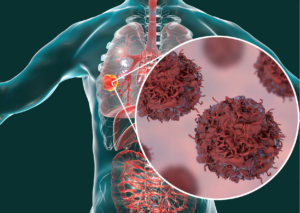Lung Cancer is said to be the most common yet prevalent cancer of all. But the mortality rate is still rising up without any break. In India alone, 1.76 Million are killed from Lung Cancer while the disease is responsible for 7.5% of cancer Disability-Adjusted Life-Years (DALY) in the country.
The treatment options around the world, especially in the United States has never been limited to the Cancer victims, that may lead to them getting the desired care and be saved from this crucial disease, but in some cases, the disease takes over the entire body before the doctors and specialists can stop the cancerous cells from taking a life.
This happens when either the patient had ignored all the signs and symptoms of Lung Cancer or never got a Second Opinion even though they didn’t benefit from the Initial Consultation. Getting a Second Opinion can save your life as well as show you an improved treatment plan that can guarantee your wellness.
Let’s learn about the importance of getting a Second Opinion for Lung Cancer.
What is Lung Cancer?
Lung cancer is a type of cancer that starts in the lungs, typically in the cells lining the air passages. It is one of the most common cancers globally and is a leading cause of cancer-related deaths. Lung cancer can be broadly categorised into two main types: non-small cell lung cancer (NSCLC) and small cell lung cancer (SCLC), each with distinct characteristics.
Non-Small Cell Lung Cancer (NSCLC):
- NSCLC is the most common type of lung cancer, accounting for about 85% of cases.
- It includes several subtypes, with adenocarcinoma, squamous cell carcinoma, and large cell carcinoma being the most prevalent.
- NSCLC tends to grow more slowly than SCLC, making it potentially more treatable if detected in the early stages.
- Symptoms can include a persistent cough, coughing up blood, chest pain, and shortness of breath.
Small Cell Lung Cancer (SCLC):
- SCLC accounts for about 15% of all lung cancer cases and is known for its rapid growth and aggressiveness.
- It is strongly associated with smoking and often diagnosed at an advanced stage.
- SCLC is more likely to metastasize (spread) early in the disease, which can limit treatment options.
- Common symptoms include cough, shortness of breath, chest pain, and symptoms related to distant metastasis, such as bone pain or neurological symptoms.
Causes and Risk Factors:
- Smoking is the leading cause of lung cancer, with both active and passive (secondhand) smoking increasing the risk.
- Exposure to carcinogens, such as asbestos, radon, and certain industrial chemicals, can contribute to lung cancer.
- Family history of lung cancer, genetic factors, and previous radiation therapy can also be risk factors.
Diagnosis:
- Lung cancer is often diagnosed through imaging tests like X-rays, CT scans, and PET scans.
- A biopsy, which involves removing a sample of lung tissue, is necessary to confirm the cancer type and guide treatment decisions.
The Importance of a Second Opinion
The importance of a second opinion in healthcare cannot be overstated. Seeking a second opinion is a proactive and valuable step in the medical decision-making process, and it offers several key benefits:
Confirmation of Diagnosis
Second opinions can verify an initial diagnosis, reducing the risk of misdiagnosis and ensuring that the right condition is being treated. This is particularly crucial in complex or serious medical conditions.
Validation of Treatment Plans
A second opinion can help determine whether the proposed treatment plan is the most suitable and effective one. It can offer alternative treatment options that may be more appropriate, less invasive, or have fewer side effects.
Peace of Mind
Second opinions provide patients with reassurance and confidence in their healthcare decisions. Knowing that multiple experts concur with a diagnosis and treatment plan can alleviate anxiety and doubts.
Increased Treatment Options
Seeking a second opinion can reveal additional treatment choices, including clinical trials, experimental therapies, or more advanced approaches that may not have been considered initially.
Risk Mitigation
For surgeries and high-risk procedures, a second opinion can help in identifying potential complications or providing alternative approaches that may be less risky.
Personalised Care
Every patient is unique, and what works for one person may not be the best choice for another. Second opinions consider an individual’s specific medical history, preferences, and circumstances to tailor the care plan accordingly.
Improved Communication
Second opinions can facilitate better communication between patients, healthcare providers, and their families. A fresh perspective often leads to clearer explanations and a better understanding of the medical condition and treatment.
Empowerment
Seeking a second opinion empowers patients to take an active role in their healthcare. It encourages them to ask questions, gather information, and make informed decisions about their well-being.
Quality of Life
For chronic conditions or life-altering diagnoses, a second opinion can help patients weigh the potential impact on their quality of life, ensuring that the chosen treatment aligns with their values and goals.
Critical Conditions
In cases of critical or life-threatening illnesses, second opinions can be lifesaving. They can uncover more aggressive or innovative treatment strategies that might make a substantial difference in the outcome.
In summary, the importance of a second opinion lies in the thoroughness of your healthcare decisions. It provides peace of mind, expands your treatment options, minimises risks, and ensures that your care plan is tailored to your unique needs. Ultimately, a second opinion is a proactive step towards achieving the best possible health outcomes.
Conclusion
In conclusion, lung cancer is a formidable adversary that affects millions of lives worldwide. Its complex nature and late-stage diagnoses make it a particularly challenging disease to overcome. However, there is hope on the horizon, and one powerful ally in the fight against lung cancer is the invaluable tool of a second opinion.
A second opinion, especially from a renowned expert in the field of oncology, can be a beacon of hope for lung cancer patients. It offers the possibility of not only confirmation of the diagnosis but also access to a wider spectrum of treatment options. Different oncologists may have varying perspectives and approaches, and this diversity can open doors to innovative therapies, clinical trials, and cutting-edge treatments.
With a second opinion, patients can be empowered to make informed decisions about their lung cancer treatment journey. They gain access to the expertise of seasoned specialists who stay at the forefront of research and technology. This additional layer of medical advice can lead to more personalised and effective treatment plans tailored to the patient’s unique condition and needs.
So, for those battling lung cancer, or those supporting loved ones on this challenging journey, remember the power of a second opinion. It’s not just a medical consultation; it’s a lifeline to better treatment options, a brighter future, and a chance at a healthier, cancer-free life. Don’t hesitate to explore this crucial resource, and reach out to experts who can help you navigate the path to recovery. Together, we can harness the strength of a second opinion to save lives and make a difference in the fight against lung cancer.














